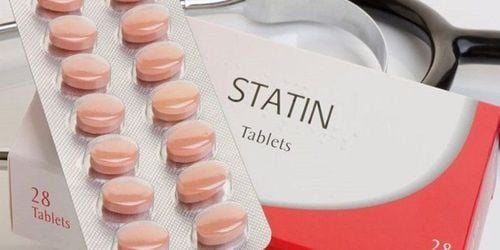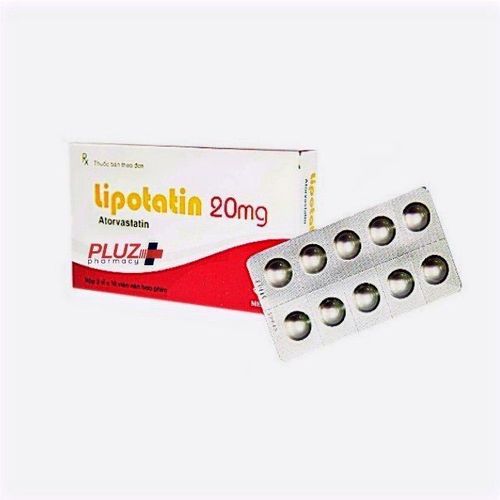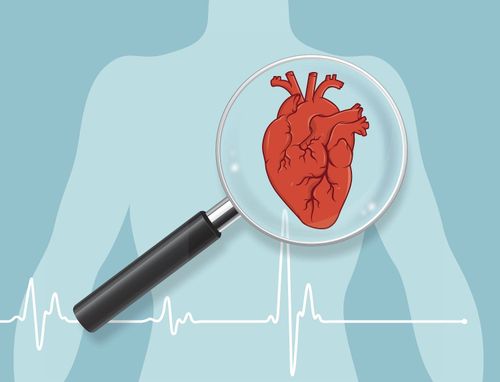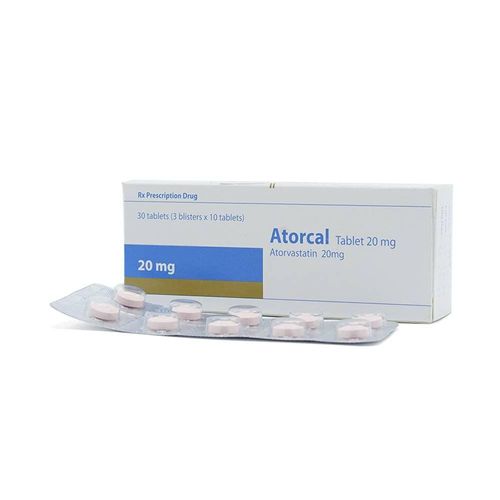This is an automatically translated article.
Cholesterol includes good (HDL) and bad (LDL). Bad cholesterol has a significant impact on health, is the cause of many chronic diseases, increases the risk of cardiovascular disease, leading to dangerous complications. The following are mistakes that will cause high cholesterol levels that many people make.
1. Not understanding cholesterol indicators
Your cholesterol level tells about the amount of fat in the blood. Unhealthy levels have been linked to hardening of the arteries, which can cause heart disease, heart attacks, and strokes. Indicators include “bad” (LDL) and “good” (HDL) cholesterol, as well as triglycerides – a common type of fat in the body. If you have a clear understanding of where your stats are and what they're at risk, there are a few tips you can take to help manage and protect your health.
2. Disregarding health checks and testing
Unhealthy hypercholesterolemia usually doesn't cause any symptoms, so it's important to be proactive about getting your cholesterol checked periodically. If you find a problem, it will be helpful to stick to a healthy diet, make more scientific lifestyle changes, and take medications as prescribed. People over the age of 20 need a simple blood test every 4-6 years to make sure everything is within healthy limits. If your test results are not good, your doctor will monitor you closely to give necessary instructions and treatment.

Chủ động kiểm tra cholesterol định kỳ giúp người bệnh sớm phát hiện và điều trị bệnh lý
3. Skip the exercise
Regular exercise is one of the best ways to control your cholesterol. You don't have to run a marathon like a pro. In fact, just 40 minutes of walking, swimming, biking, or dancing 3-4 times a week is enough to benefit you. If you don't have time, you can break up the exercises into 10 minutes throughout the day. Endurance training - like push-ups, pull-ups, weight training can also help.
4. Sitting too long
Sitting for too long can lead to obesity, heart disease and high blood pressure. What's more, this bad habit also lowers "good" cholesterol, which helps remove harmful substances and raise triglyceride levels. Sitting for too long can affect you, even if you exercise regularly. If you have to work in an office, try to get up and walk around every 30 minutes, or occasionally use a standing desk if possible.
5. Smoking
Smoking lowers your “good” cholesterol, which means you keep more of the bad stuff. Not only that, but smoking is also linked to high blood pressure, diabetes and heart disease. Quitting smoking can make your cholesterol levels better and help protect your arteries. If you don't smoke, don't forget that staying away from secondhand smoke is also especially important.
MORE: Smoking and cardiovascular diseases
6. Don't care about weight
Being overweight, especially with a lot of fat around the belly, can raise bad cholesterol (LDL) and lower good cholesterol (HDL). Just losing 10% of your weight can correct this condition. So ask your doctor for advice on the best diet and exercise to help you lose weight.
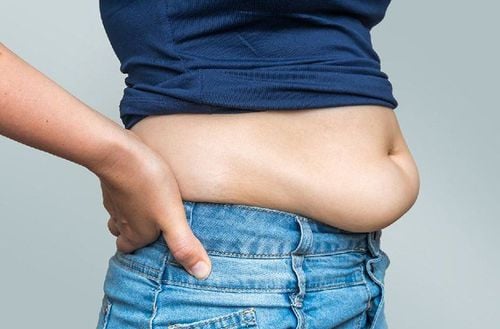
Cân nặng tăng nhanh đặc biệt mỡ vùng bụng có thể làm tăng cholesterol xấu
7. Eat more saturated fat
Saturated fats are derived from beef, pork, lamb and high-fat dairy products such as butter, cream, milk, cheese and yogurt, as well as palm and coconut oils. All of the above can raise LDL cholesterol ("bad" cholesterol). Remove visible fat from meats and use skim milk and low-fat yogurt. If your "bad" cholesterol levels are high, get no more than 6% of your calories from saturated fat.
8. Eat lots of trans fats
Trans fats are also sometimes called trans fats or “partially hydrogenated” oils, which raise bad cholesterol and decrease the good ones. They are found in fried foods, cakes, pizza dough, doughnuts, muffins, cookies, crackers, and many prepackaged foods. Checking food labels is one way to limit trans fats. Also, don't forget to eat plenty of fruits, vegetables, whole grains, low-fat dairy, poultry, fish, and nuts.
MORE: Foods that help increase good cholesterol
9. Remove all fat from the menu
Not all fats are bad. Replace saturated and trans fats with healthier polyunsaturated and monounsaturated fats. You'll find good fats in salmon, herring, avocado, olives, walnuts, and liquid vegetable oils like safflower, canola, sunflower, and olive oils. But be sure to get no more than 30% of your daily calories from any type of fat.
10. Forget about fiber
There are 2 types of fiber: soluble and insoluble. Both are good for heart health, but soluble fiber in particular helps lower LDL levels. Add this nutrient to your diet with a morning bowl of oatmeal or oat bran, fruit, legumes or veggies.
11. Drinking too much alcohol
Alcohol abuse can cause high cholesterol which is not good for health, especially increases the level of fat in your blood. According to recommendations, men should not drink more than 2 drinks per day and women 1 drink. If you continue to stick to your alcohol limit, you can also increase your "good" HDL cholesterol levels.

Sử dụng rượu bia quá nhiều có thể làm cholesterol tăng cao
12. Ignore Other Health Conditions
It is important to understand and treat any medical problems associated with bad cholesterol, including high blood pressure, diabetes, kidney disease, liver disease, and hypothyroidism. If you have one of these conditions well controlled, you may also be able to help your cholesterol.
13. Not taking medicine exactly as prescribed
It is very important to follow your doctor's instructions and prescriptions. If you forget to take your medicine, don't try to "make up" for it by taking more next time. Not only is this not as helpful as it should be, but it can even make you dizzy or sick. Don't forget to tell your doctor about any medications you're already taking. Some medicines can cause problems if taken at the same time as others. This is called a drug interaction.
Thus, in order to limit high cholesterol, in addition to lifestyle changes, being active, combined with a healthy diet, some subjects also have to take medication as prescribed by the doctor.
Please dial HOTLINE for more information or register for an appointment HERE. Download MyVinmec app to make appointments faster and to manage your bookings easily.
Reference source: webmd.com



